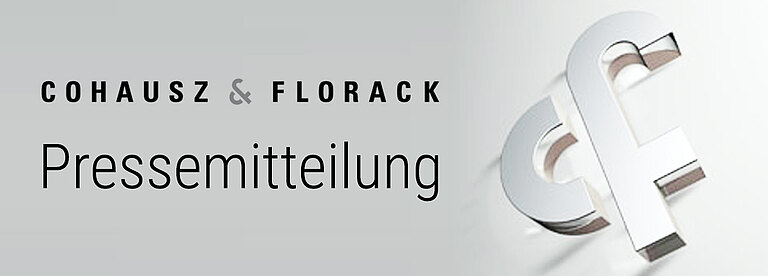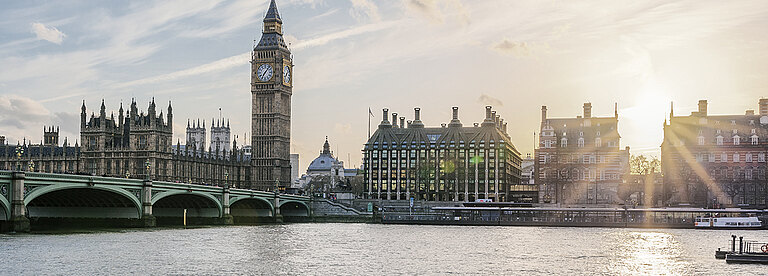Düsseldorf, 08.05.2014 – After 25 member states of the European Union got the implementation of a European unitary patent off the ground in November 2011, the German venues suitable for future patent lawsuits have been decided upon by the Federal Minister of Justice in mid-March 2014: Hamburg, Mannheim, Düsseldorf and Munich. “We appreciate Düsseldorf being one of the local divisions of the Unified Patent Court very much”, says patent attorney Gottfried Schüll of the Düsseldorf law firm Cohausz & Florack, which committedly and actively participated in the process of drafting the rules of procedure for the future Unified Patent Court (UPC).
On a European level, a diverse number of institutions and task forces are currently working on the determination of operating principles for the UPC in detail. Cohausz & Florack have submitted several proposals to change the drafted rules of procedure of the court in order to guarantee the transparency and the financial straightforwardness of patent lawsuits according to the interests of small and medium-sized German businesses in particular. “Our commitment has paid off”, reports Erik Schäfer, attorney-at-law. “Our suggestions have found entrance into the EU expert commission’s present amended draft, some of them even literally.”
In total, the EU expert commission has received 110 statements on the rules of procedure – the number of privies fluctuated between the different country. While, for example, ten out 20 patent law firms raising their hand are of British origin, only two other German law firms apart from Cohausz & Florack joined in the process of revision.
Procedure splitting proves successful
In the eyes of Cohausz & Florack, maintaining the splitting of patent lawsuit procedures into two sections, which is deeply rooted in the German legal system, is a big success. It was achieved thanks to the revision of the rules of procedure which was encouraged by diverse proposals to change them. First, the court has to clarify the patent infringement, meaning the question whether technologies have actually been copied or not. Not until a second separate procedure can the defendant have the legitimacy of the respective patent checked. Patent attorney Jan Ackermann on this matter: We, amongst others, pressed for a sensible implementation of this dual system in the rules of procedure since the maintenance of this option speaks on behalf of innovative small and medium-sized German businesses and since the duration and the costs of such a procedure are tolerable for the prosecutor.
In an indirect way, splitting the procedure adds to the general definition of the value of a respective patent. Nevertheless, in order to make those European countries which so far have had a different jurisdiction accept this splitting, a compromise stipulation in the amended rules decrees that the Unified Patent Court has to justify why it intends to treat matters of patent infringement and validity in either one singular or two separate procedures.
Freedom of choice remains
The so-called “opt out declaration” is deemed another success by Cohausz & Florack. According to this declaration patent proprietors can choose between the UPC and their respective national court currently in charge for a (renewable) transition period of seven years. Issuing a simple statement is enough; after the latest amendments consulting an attorney-at-law or a patent attorney is no longer mandatory (rule 8.1). “There will, however, be a fee which is still disputed”, reports Jan Ackermann. In their statements, Cohausz & Florack, as well as other law firms, have pleaded for assessing this fee at a relatively low level in accordance with the patent. “Charging immense fees in order to leave everything as it was would be highly incomprehensible and could hardly be communicated”, as Ackermann puts it.
A fair apportionment of costs has been arranged
Eventually, one statement of Cohausz & Florack was taken into account during the revision of the CPU rules of procedure which others have also brought up in a similar fashion: In order to keep large companies from winning legal disputes automatically because unlike small or medium-sized businesses they are able to afford procedural costs for patent lawsuits, Cohausz & Florack attorneys insisted on including a fair apportionment of costs in the rules of procedure.
This was now put into practice in terms of a higher cost transparency. In contrast to the US legal system for instance which regularly forces every party involved to bear its own procedural costs independent of the outcome of the lawsuit, the system of the Unified European Patent Court realizes the principle according to which the prevailing party is reimbursed at an appropriate level by the losing party. This is also common in Germany.



